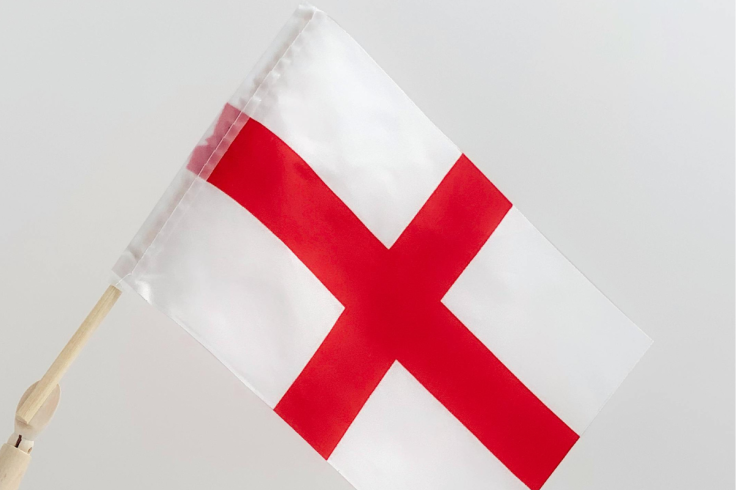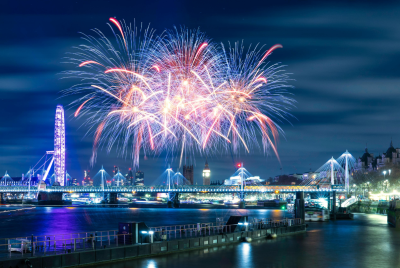'Put 'Em up Anywhere!' Yvette Cooper Defends Flag-Flying as Symbol of Togetherness
Her message seeks to bridge divides, encouraging Britons to embrace flags as emblems of shared identity

Yvette Cooper's spirited call to fly the St George's flag 'anywhere' has reignited national debate over patriotism in 2025. The Home Secretary described the flag as a unifying emblem of British togetherness at a time when its growing use is tied to immigration tensions, community identity, and national pride.
Yvette Cooper, UK Home Secretary, declared on 2 September 2025, that people should hang St George's flags 'anywhere,' including motorway gantries, as a sign of unity rather than division. In a Times Radio interview, she revealed her home features St George's bunting, Union Jack flags, and Yorkshire Rose decorations, stating, 'I would put them up anywhere. I mean, we put them up anywhere. We have the St George's flag above the Pontefract Castle. We fly [it] in my constituency'.
Cooper emphasised British values like fairness and decency, adding, 'Oh, put 'em up anywhere. I would put them up anywhere,' in response to queries about public displays. This comes amid councils removing unauthorised flags from lamp posts, citing safety policies, following the online 'Operation Raise the Colours' campaign that saw thousands erected since July 2025.
2025 Sees Surge in Flag Displays Amid Patriotism Row
Throughout 2025, St George's and Union Jack flags have proliferated across England, starting with the women's Euros in July and escalating post-riots, with groups like Weoley Warriors claiming responsibility for displays in Birmingham suburbs to express 'pride and patriotism'.
Since August 2025, St George's flag displays have surged across England, amplified by social media posts, with some tying them to racism while others champion them as patriotic unity. A YouGov survey from 2024, updated in 2025, shows 57% view the flag favourably, though 27% see it as unfavourable due to far-right associations.
Cooper's comments align with Prime Minister Keir Starmer's support, who revealed a St George's flag in his Downing Street flat, saying, 'I'm very encouraging of flags. I think they're patriotic'. Dorset Council leader Nick Ireland noted an 'explosion of patriotism' but warned of far-right hijacking, leading to vandalism like painted roundabouts.
Togetherness or Division?
Cooper's stance counters criticisms that flags intimidate minorities amid asylum protests, insisting they promote 'togetherness' and should not be devalued by divisive use. In Parliament on 1 September 2025, she linked flags to national pride during an asylum system update, repeating support for displays 24 times in debates.
Labour's 2025 embrace of national symbols, with Starmer adding Union Jacks to party materials, reflects efforts to reclaim patriotism from far-right groups, though critics like Stand Up to Racism's Sabby Dhalu warn flags risk alienating immigrants amid ongoing protests.
X post from @SaulStaniforth on 2 September 2025, shared Cooper's BBC Breakfast clip: 'Asked if she's got a flag on display in her home, the Home Secretary says she has Union Jack bunting, St Georges flags, St Georges bunting, and Union Jack flags and tablecloths'.
Asked if she's got a flag on display in her home, the Home Secretary says she has Union Jack bunting, St Georges flags, St Georges bunting, and Union Jack flags and tablecloths. pic.twitter.com/gvYsfMqOrf
— Saul Staniforth (@SaulStaniforth) September 2, 2025
With regulations allowing national flags without consent since 2012, Cooper's call fosters unity in a divided 2025 landscape, urging pride without prejudice. Her message seeks to bridge divides, encouraging Britons to embrace flags as emblems of shared identity, not conflict.
Yet, the debate persists, as some see these displays as welcoming expressions of national spirit, while others fear they deepen tensions in diverse communities. Cooper and Starmer's push reflects a delicate balance, aiming to unite a nation grappling with its identity.
As flags continue to spark discussion, their meaning remains contested, challenging Britain to define patriotism inclusively in a polarised era.
© Copyright IBTimes 2025. All rights reserved.





















